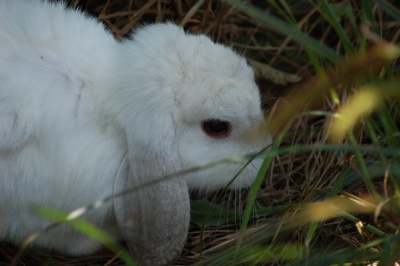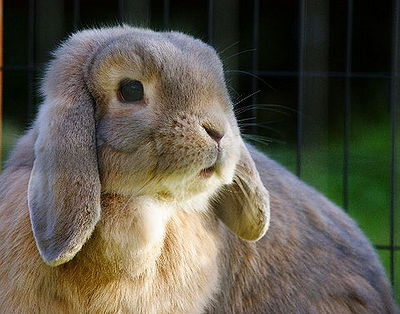
First, to allay any fears you may have, lice are specific to each individual species. In other words, lice from one type of animal cannot be transferred to another type of animal. Rabbits have their own rabbit lice. Lice from other species cannot be transferred to humans.
If your rabbit or other small animal appears to be itchy and is always scratching him/herself, it’s probably a parasite infestation. Check for bald areas and/or red, irritated spots.
If you suspect your pet has a parasite problem, take him/her to the vet for diagnosis and treatment. DO NOT purchase human or other species medications over-the-counter to treat your pet. They can be harmful to your pet, even toxic.
Before returning your rabbit to his/her cage after veterinary treatment, clean the cage thoroughly. Use a bit of dish detergent in warm water to wash the cage, dishes, toys. Rinse soap off well. Discard any bedding or food and replace with fresh. Freeze any other items such as the toys for 24 hours – that will kill any remaining lice.
Lice are insects similar to ants. There are two types, biting lice and sucking lice. Sucking lice are the more problematic of the two because they can transmit disease through the blood and also cause anemia.
Other pets that can commonly have lice are guinea pigs, rats, mice and gerbils. These pets should be seen by the vet for treatment as well. Clean their cages as directed for rabbits.
Never medicate these pets yourself as it can have disastrous results.


